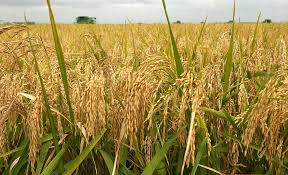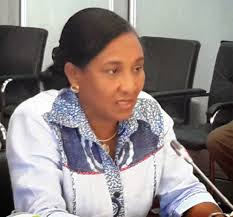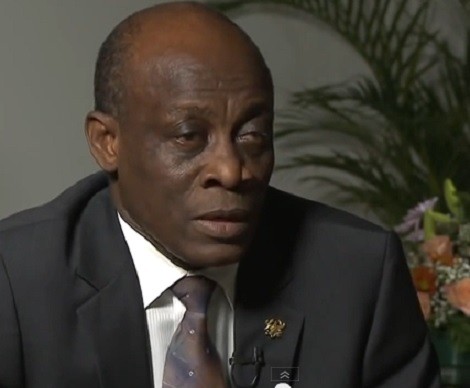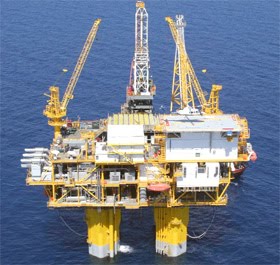 The Energy and Petroleum Ministry says the award of new petroleum contracts to eight foreign companies was negotiated within the existing legal and regulatory framework of Ghana.
The Energy and Petroleum Ministry says the award of new petroleum contracts to eight foreign companies was negotiated within the existing legal and regulatory framework of Ghana.
A news release issued by the Communications Advisor of the ministry, Edward Bawa indicated the companies went through all the necessary processes to be considered for the contracts.
The release is in response to claims by the Africa Centre for Energy Policy that the contracts with the eight firms lacked transparency.
But according to the statement from the Ministry, it is enshrined in the new agreements that the companies’ operations would be governed by and construed in accordance with the laws of Ghana in effect and as amended from time to time, a move to ensure accountability and transparency.
Some of the companies include A-Z Petroleum, Sahara Energy fields and Heritage Oil, Eco Atlantic, among others.
The Executive Director of the ACEP, Mohammed Amin Adam told a news conference Tuesday that the administrative processes involved in awarding the contracts were open to abuse, rent seeking and corruption.
Again, he said these companies were start-ups and do not have the capacity to engage in any oil business in the country, adding, some of them were established between June 2013 and February 2014.
But the Ministry disagreed.
It listed the following as the processes for acquiring a block or contract area:
- Letters of interest usually from more than one company are addressed to the Minister for Energy and Petroleum to acquire exploration block.
-
The Ministry then notifies the Petroleum Commission (PC) of receipt of the application. The PC then formally writes to the companies to do a presentation of their companies to the PC, after which they are invited to visit the data room at a fee.
-
Applicants then identify blocks of interest and formally apply for those blocks
-
An evaluation committee consisting of personnel from the Ghana National Petroleum Corporation (GNPC), the PC and the Ministry of Energy and Petroleum (MOEP) then review the applications based on, among other things, the technical and financial competences of these companies. This committee then sends its report including their recommendations to the Minister for Energy and Petroleum who then takes a decision based on those recommendations.
-
If the application is considered successful, a Government negotiation team made up of the MOEP, the GNPC, the Attorney General’s (AG) department, the Ministry of Finance (MOF), the Environmental Protection Agency (EPA), Ghana Revenue Authority (GRA) and the PC is constituted to negotiate a Petroleum Agreement (PA) with the applicant. If the application is unsuccessful, applicant is advised accordingly.
-
A draft PA is prepared following successful negotiation by the MOEP, PC AND GNPC.
-
The Ministers for Energy and Petroleum, Finance, Justice and Science and Environment then consult on the draft PA.
-
The Minister for Energy and Petroleum then sends the draft PA to Cabinet for approval
-
The Cabinet approved draft PA is then sent to Parliament for ratification and
-
The PA becomes effective on the date of ratification
From the above rigorous process it is obvious that issues of corruption, rent seeking and lack of transparency do not arise, the stated noted.
Below is the full press release issued by the Energy and Petroleum Ministry
The Ministry of Energy and Petroleum has noted with great concern some issues raised in a Press Statement presented on behalf of the Africa Center for Energy Policy (ACEP) at a press conference at a Press Conference held on September 16, 2014 on the state of the Energy Sector in Ghana.
The Ministry wishes to commend ACEP for their continuous interest in the Energy Sector. The ministry considers ACEP’s contributions in the past years as invaluable and encourages them and other civil society organizations to continue to be the watch dogs of the energy sector.
The Ministry however wishes to take this opportunity to straighten some assertions made by ACEP that seem to create some confusion in the minds of well-meaning Ghanaians.
ACEP presented its statement under certain captions we will as much as possible try to respond to some of their concerns under same.
- OPEN CONTACTING
ACEP states that the Hon. Minister extolled his achievements for negotiating and taking through parliamentary approval eight (8) new Petroleum Agreements; citing increasing fiscal terms, introduction of capital gain tax and removal of blanket stability clauses.
However, whilst these new developments are positive, they fall flat in the face of transparency and accountability, as they have cause to believe that the administrative processes used in awarding these contracts were open to abuse, rent seeking and corruption. It is not clear what ACEP means by government using “administrative process to grant all the 8 new petroleum agreements”. The petroleum agreements were negotiated within the existing legal and regulatory framework.
The new agreements recognizing the transition and changing legal landscape, provides that the agreements shall be governed by and construed in accordance with the laws of Ghana in effect and as amended from time to time.
For the benefit of Ghanaians the following are the processes for acquiring a block or contract area:
- Letters of interest usually from more than one company are addressed to the Minister for Energy and Petroleum to acquire exploration block.
-
The Ministry then notifies the Petroleum Commission (PC) of receipt of the application. The PC then formally writes to the companies to do a presentation of their companies to the PC, after which they are invited to visit the data room at a fee.
-
Applicants then identify blocks of interest and formally apply for those blocks
-
An evaluation committee consisting of personnel from the Ghana National Petroleum Corporation (GNPC), the PC and the Ministry of Energy and Petroleum (MOEP) then review the applications based on, among other things, the technical and financial competences of these companies. This committee then sends its report including their recommendations to the Minister for Energy and Petroleum who then takes a decision based on those recommendations.
-
If the application is considered successful, a Government negotiation team made up of the MOEP, the GNPC, the Attorney General’s (AG) department, the Ministry of Finance (MOF), the Environmental Protection Agency (EPA), Ghana Revenue Authority (GRA) and the PC is constituted to negotiate a Petroleum Agreement (PA) with the applicant. If the application is unsuccessful, applicant is advised accordingly.
-
A draft PA is prepared following successful negotiation by the MOEP, PC AND GNPC.
-
The Ministers for Energy and Petroleum, Finance, Justice and Science and Environment then consult on the draft PA.
-
The Minister for Energy and Petroleum then sends the draft PA to Cabinet for approval
-
The Cabinet approved draft PA is then sent to Parliament for ratification and
-
The PA becomes effective on the date of ratification
From the above rigorous process it is obvious that issues of corruption, rent seeking and lack of transparency do not arise.
- ISSUES OF COMPANIES BEING LISTED
ACEP also makes the case that “of all the foreign companies involved in the eight (8) new Petroleum Agreements, only three (3) are listed on the stock exchange. The rest according to ACEP, are therefore not regulated and their sources of financing are cases the anti-corruption agencies in Ghana should consider investigating. In as much as we will support any Government agency that has any interest in investigating any of the companies in the Oil sector, the Ministry wishes to state that listing on any stock exchange is not a criterion to be considered for an oil block and there is no law in Ghana that prescribes that. For instance Kosmos Energy who discovered the Jubilee Field came into Ghana in 2004 at a time when they were not listed on any stock exchange. Equally interesting is the fact that Blackstone and Warburg Pincus, two of the largest equity funds who supported Kosmos financially only got listed on the New York Stock Exchange in 2011 four years after Jubilee discovery. So it is therefore not the case that unlisted companies necessarily have questionable source of financing.
- LOCAL CONTENT AND LOCAL PARTICIPATION
Local content and Local Participation Regulation 4 of the Local Content Regulations, LI 2201 provides for a five (5%) indigenous Ghanaian participation in every Petroleum Agreement. For a company (international oil company) to qualify for the allocated block, the minister shall determine if the IOC has qualified by satisfying the requirements of including the not less than 5% indigenous participation. This is contrary to ACEP’s assertion that the minister has the power to decide on persons or firms that qualify in a petroleum agreement.
On the contrary, the minister encourages IOC’s freely selecting/choosing their local partners without any government interference. This explains why there are no issued guidelines from government on the selection of indigenous firms that can partner foreign oil companies’ activities.
- EMERGENCY POWER BARGES
While the Ministry very much encourages ACEP and other organizations to take keen interest in the happenings within the energy sector, we will very much appreciate it ACEP could cross check pieces of information they come across with what the Ministry has. This will certainly enrich our discussions as we collectively as a country work to provide reliable and sustainable energy services to all citizens. To the specific questions raised in the ACEP’s Press Conference with respect to the emergency power barges, this statement wishes to provide responses to them.
- “Is the power supply arrangement for short to medium term or long term? Given the uncertainties of technology and natural gas prices in the future, it will be preferable to have a short term supply arrangement while the Government focuses on building land based long term power plants.”
Response:
This particular power supply arrangement is a medium-term one (10 years). We note that in line with the objective of attaining 5,000MW installed generation capacity by 2016, various plants are under construction. Others are also going through the necessary processes towards commencement. Government, noting the low water inflows into the hydro facilities and their implications on power supply for 2015, is being proactive by securing these barges as one of the many measures being taken in order to take care of the possible shortfalls in 2015.
- “Has independent Feasibility Studies (including EIA) been done on the two sites (Tema and Takoradi) by the Government or ECG? Or are the arrangements based on proposals and estimates by KKH? There may be serious potential cost implications for such a large project to be structured mainly on proposals by the power supplier in the absence of a Feasibility Study. If such studies have been done, it will be helpful to have the reports available to the public.”
Response:
Karpowership, like any Independent Power Producer (IPP) who intends to operate in the country needs to abide by the regulations in the sector. For that matter any permit or license required for the operation of a power plant must be obtained by the developer. Karpowership is therefore going through the processes of obtaining all necessary permits and licenses just like any other power producer would have done in order to operate in the country.
As this is an emergency, the Government has formed a team of key regulatory and commercial stakeholders such as ECG, GRIDCo, PURC, Energy Commission, EPA, Ghana Maritime Authority, GPHA, etc., to facilitate and fast track the licensing and permit process in order to meet the tight project deadlines.
- “How is the project being procured? Has there been a transparent procurement process? Have other potential power ship operators been invited to submit proposals? Or is it sole sourcing?”
Response:
The Ministry is at a loss as to what ACEP means by a transparent procurement process. Any IPP who comes into the sector looks for an off-taker. The off-taker negotiates a Power Purchase Agreement (PPA) with the producer on the tariffs. The PURC gives an indicative tariff based on the submission of technical and financial proposals by the developer. The off-taker then negotiates a tariff with the developer with the indicative tariff given by the PURC. This is exactly what has been done in the case of Karpowership. The procurement process is therefore very transparent.
- “Who provides fuel for operating the power ship? Is it the Ghana Government? If it is, do we have the budget or institutional arrangements for the supply of HFO (Heavy fuel Oil) for the purpose? ECG, as is currently structured, does not have that capability. If the fuel is to be provided by KKH, are they better suited to manage the fuel risk than the Government of Ghana? For such large scale transactions, one will expect the Government to procure the fuel since it can be included in the national portfolio of fuel imports and enjoy the economies of large procurement. More significantly, the Government can also secure fuel on better terms through Government to Government arrangements etc. (Pakistan and Lebanon supplied fuel under their respective contracts with KKH).”
Response:
Under this arrangement, the fuel is being provided by the power producer.
- “Typical transactions of such nature involve escrows for the sale of energy produced, fuel, late payments etc. What is the size of such escrowed amounts? We understand that the Turkish company is demanding 4 months escrow for fuel, 4 months escrow for capacity and another US$50 million upfront for mobilization. The 2 escrows alone will amount to between US$170 and US$200 million every 4 month. Given ECG’s current financial position, the sizes of such escrows are too large and will impose onerous financial difficulty on ECG. Curiously, if Ghana can afford these, one wonders why we cannot apply these resources to build our plants over the next three years.”
Response:
We wish to provide the following clarification in answering this question: Under the monthly payment arrangement, power is consumed for one (1) month; Seller takes fifteen (15) days to submit an invoice to Buyer. Buyer has seventy five (75) days grace period to effect payment. This constitutes 120 days or four (4) months. It is the equivalent of four (4) months bill that is used in establishing the escrow account.
The US$ 50 Million Guarantee is not an expenditure. It is a guarantee to ensure that when the Seller after taking bank loans to prepare the ship and send to Ghana, Buyer will not decide to abrogate the contract. The amount reduces by 10% per year of operation. It is not therefore the case that “the Turkish company is demanding 4 months escrow for fuel, 4 months escrow for capacity and another US$50 million upfront for mobilization” and that “the 2 escrows alone will amount to between US$170 and US$200 million every 4 month.”
- “If the Government of Ghana will be called to provide guarantees for ECG’s obligations, as is most likely, then has parliamentary approval been sought, since it constitutes an international contract?”
Response:
At the moment, that is not the arrangement. Should there be the need for government’s support; the necessary approvals would be sought. This is not a condition precedent for financial closure. It is rather a condition subsequent to operation of the plant.
- “What is the firm time line for installing the power ship in Ghana and operating it? The Minister alludes to Q1 and Q2 of next year. Is it a realistic target? Can all the associated infrastructural works such as preparation of the berthing area, grid interconnection etc be completed by Q1 next year?”
Response:
In stating the timelines for the delivery of the powership the Hon Minister for Energy and Petroleum took into consideration all necessary preparatory works that needed to be undertaken and believes that per the project schedule the first and second phase of powership will be delivered in the first and second quarter of 2015 respectively.
- “What protection do we have in the contract for the public? It is to be noted that KKH has had disputes with the Governments of Pakistan and Lebanon over the administration of their power supply contract. Have we provided sufficient protection for ourselves regarding non-performance by KKH? Are the penalties adequate? How watertight are the obligations of KKH? Are the financial safeguards (Liquidated Damages etc.) adequate? In the Lebanese contract, the penalty for delays is US$270,000/day whilst the penalty for not producing the contractual output of electricity is US$500,000/day for every 1% of production that falls below the agreed contractual level).”
Without trying to question the integrity of ACEP with regards to their data it is a bit curious on the figures quoted and therefore the ministry will want to have more information on how these figures were arrived at. In the case of the Ghana project, the penalty for delay is US$ 135,000/day. Penalty for 1% output below the guaranteed level is US$ 36,654.57/day per powership, making it a total of US$ 73,309.14 for the full complement of the powership.
- “What is the size of the contract (in US$ terms?)”
-
This project is an IPP and therefore all investments towards the delivery of power are to be borne by the developer. The buyer’s responsibility is to pay for power delivered as per the agreed tariff.
In conclusion the Ministry agrees with ACEP when it states that in the interest of the public taxpayer, there is the need to disclose the details of the arrangement with Karpowership. That is what we have attempted to do. The Ministry wishes to assure ACEP and all civil society groups within the Energy Sector that its doors are always opened and going forward the Ministry will continue to collaborate with all Ghanaians to ensure that we provide quality, reliable, sustainable and cost effective energy services to all citizens.
EDWARD BAWA
HEAD OF COMMUNICATIONS





